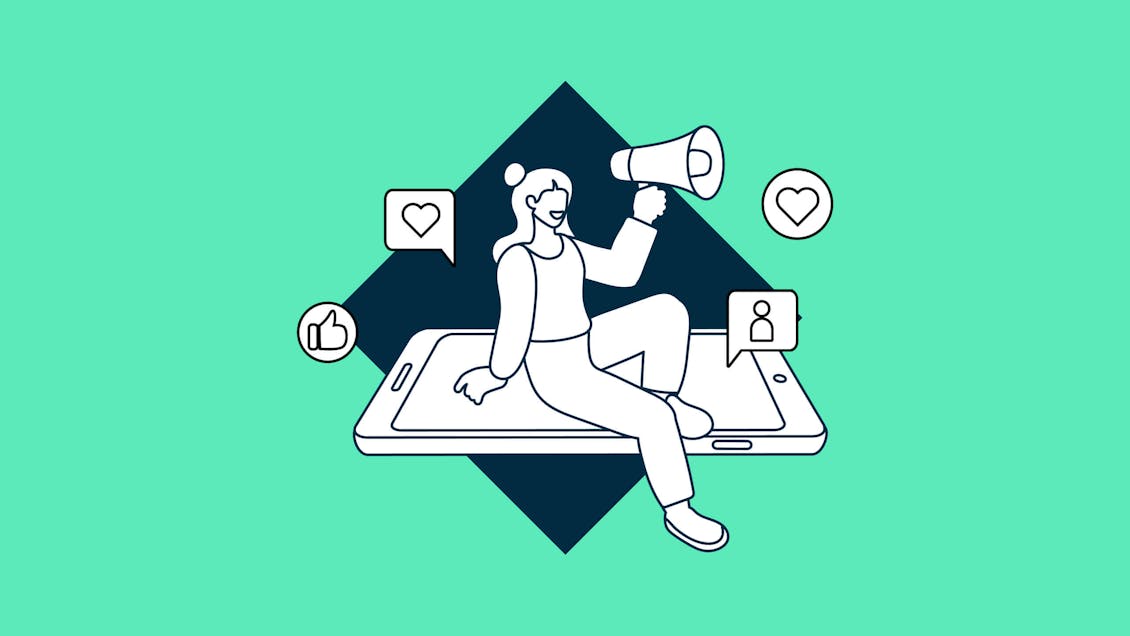Why B2B influencer marketing is here to stay

B2B brands are using influencer marketing to cut through the noise — and it’s working
If you think influencer marketing is just for skincare routines, unboxing videos, or viral TikTok dances, think again.
B2B buyers are human, too. And in the era of remote work, Slack pings, and hybrid everything, the walls between our professional and personal lives are thinner than ever. So it’s no surprise that B2B decision-makers are behaving more like consumers — scrolling, searching, listening, lurking. That means the people who influence them are no longer limited to Gartner reports and analyst briefings.
Enter B2B influencer marketing — not a gimmick, but a serious channel for serious business.
The new B2B buyer journey
You may be wondering how buttoned-up brands selling enterprise software or industrial-grade robotics could ever fit in on social media. But here’s the thing: they already do.
Platforms like LinkedIn, Twitter/X, YouTube, podcasts, and even Instagram and TikTok are full of niche experts sharing real insights, building engaged followings, and — often unintentionally — shaping purchasing decisions. These are the people B2B buyers are watching, even if they’re not commenting.
A recent Ogilvy study found that 75% of B2B marketers are already using influencer marketing, and 93% plan to increase that investment. That’s not a fad — that’s the new normal.
The importance of trust before the transaction
Here’s what’s changed:
Mid-sized and enterprise-level buyers don’t want to be sold to. They want to be understood. They want to work with companies that “get it” — their industry, their pain points, their long-term goals. And that trust-building process? It starts long before anyone clicks Book a Demo.
Influencer marketing builds that trust by humanizing your message and delivering it through someone your audience already follows and believes.
In fact, a Google study found that B2B purchasers are 50% more likely to buy when they perceive personal value in their decision, such as career growth or pride in a smart choice. Influencers bring that emotional resonance by contextualizing products and services within real-world use cases, experiences, and outcomes.
Why influencer marketing works for B2B
Let’s be clear: we’re not talking about gifting a TikTok star a software license and praying they make it go viral. B2B influencer marketing is about tapping into credible voices who can speak to your audience’s reality, whether it’s solving procurement problems, choosing the right payroll solution for their business, or navigating cybersecurity compliance.
Influencers help drive:
- Brand awareness in hard-to-crack industries
- Peer credibility through authentic storytelling
- Top-of-funnel engagement in long buyer journeys
- Reach across roles — especially when multiple stakeholders are involved
From social proof to thought leadership to peer recommendations, influencers are playing a critical role in modern B2B omnichannel marketing.
Types of B2B influencers
Not all influencers are created equal, and in B2B, alignment is everything. Here are five types of influencers to consider, depending on your goals:
1. Social Influencers
These are the people with big (or growing) followings on platforms like LinkedIn, Twitter, or YouTube. They’re known for their takes, their tone, and their timing. Think: Corporate Natalie or Champagne Cruz poking fun at remote work and workplace culture.
Great for: Social campaigns, giveaways, thought leadership, product buzz
2. Content Creators
Less about audience size, more about content quality. These are the creators who know how to tell a story, shoot a video, or build a killer carousel.
Great for: Owned content, case studies, event assets, website or campaign creative
3. Industry Experts
Researchers, respected bloggers, consultants, product reviewers — they might not be flashy, but they’re influential where it counts: your industry.
Great for: Webinars, whitepapers, partner content, influencer panels
4. Star Power
We’re talking celebrity CEOs, business authors, or niche-famous personalities. Their audience reach is massive, and their endorsement can add instant credibility.
Great for: Awareness campaigns, major launches, sponsorships
5. Affiliate Partners
They may not identify as “influencers,” but if they’re driving qualified traffic and converting leads, they belong here too.
Great for: Referral programs, pay-per-lead campaigns, performance-based partnerships
What success looks like
The best B2B influencer programs are built on authenticity, not scripts. That means collaborating with your partners to co-create content that resonates — not just “brand-speak” pasted into someone else’s voice.
It also means measuring more than likes or views. Success might look like:
- A 20% increase in qualified leads
- A spike in brand mentions on LinkedIn
- A stronger share of voice in your niche
- An uptick in demo requests from your target industry
Influencer marketing is not a plug-and-play channel — it’s a relationship. One that pays off over time.
TL;DR: B2B marketers are engaging wider audiences with the help of influencers
This isn’t about copying what B2C does. It’s about rethinking how B2B brands build relationships, earn trust, and show up where their buyers are already paying attention.
Buyers are getting smarter. Expectations are getting higher. And brands that embrace influencer marketing now will be better positioned to connect — not just convert — in the years to come.
B2B influencer marketing is here to stay. The only question is: will your brand be part of the conversation?


